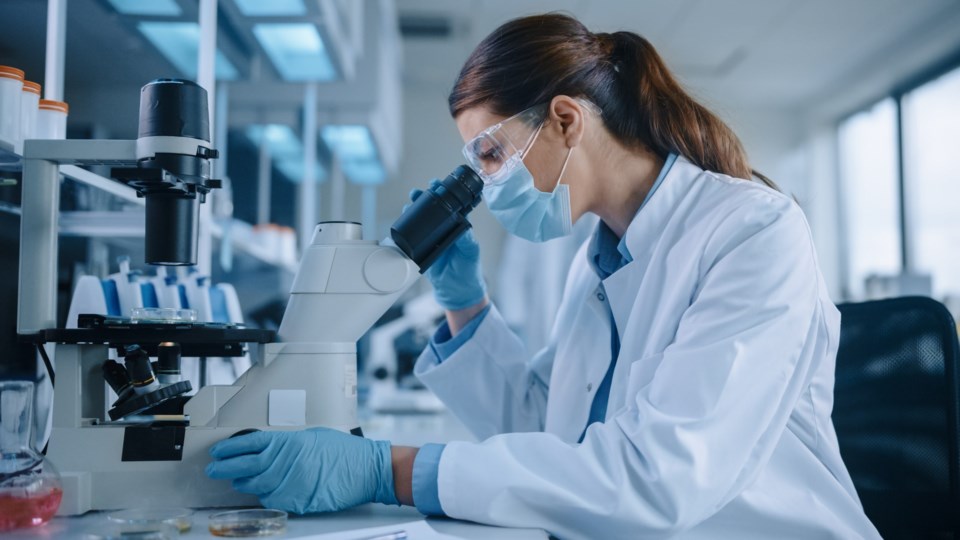Dallas College — in partnership with Collin College, Tarrant County College and University of Texas at Arlington — announced Wednesday, August 3, a groundbreaking $8.8 million grant by the U.S. Economic Development Administration to fund and create a regional career pathway model in biotechnology.
According to Dallas Innovates, seven North Texas healthcare and life science businesses like UT Southwestern, McKesson, Evolve Biologics and Texas Health Resources have already signed up to hire a combined 1,100 biotech workers from the program for positions like clinical lab techs and pharmaceutical manufacturing operators.
Dallas College officials hope this grant, aimed at training the region’s future biotech workforce, will help put North Texas in the company of major biotech hubs like the Raleigh-Durham-Chapel Hill “triangle,” an area already home to numerous life science companies like Merck & Co, Pfizer, Novo Nordisk and more.
The Dallas Morning News reports that Dallas College started to work on its application for the grant in September. “The [Economic Development Administration] was looking for something regional,” said Ben Magill, associate vice chancellor of economic opportunity at Dallas College during a news conference at BioLab. “They wanted to bring regions together. People don’t pay attention to city lines anymore and neither do companies.”
According to Magill, DFW is projected to add over 200,000 jobs over the next three years. “And this award will help us establish the critical economic and workforce development infrastructure needed to fill those jobs, increase economic mobility for underserved communities and create additional jobs.”
Tom Luce, CEO of Biotech Initiatives at Lyda Hill Philanthropies echoed Magill’s expectations in a statement: “Of all jobs in Dallas, only 40% are currently considered ‘good jobs.’ Thanks to this grant, that share will increase and thereby help to strengthen our health care institutions and our region’s economic vitality.”
Commercial Cafe recently ranked DFW as number 16 out of the top 20 U.S. metros to foster the most favorable combination of factors for the life sciences sector. According to their estimates, 744,000 residents aged 25 years or older hold at least a bachelor’s degree in science and engineering and/or engineering-related fields and the metro’s relatively accessible office market attracted brands like BioLab, which opened its ninth location in Dallas, a 37,000-square-foot co-working space at Pegasus Park.
“This award will be a catalyst,” said Magill, “Health care and health care support occupations are expected to be the fastest-growing industry sector among those jobs, expanding by about 8% or more in the next few years.”
In case you missed it, Local Profile covered Plano IDS's long history of helping its students access the most cutting-edge equipment.




